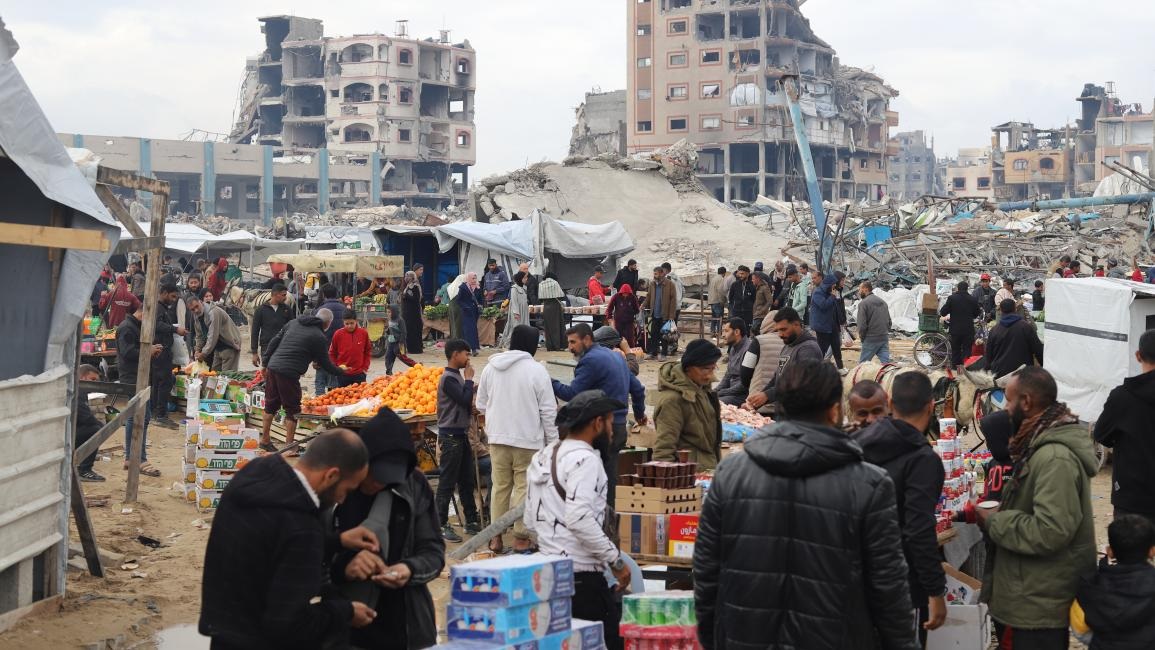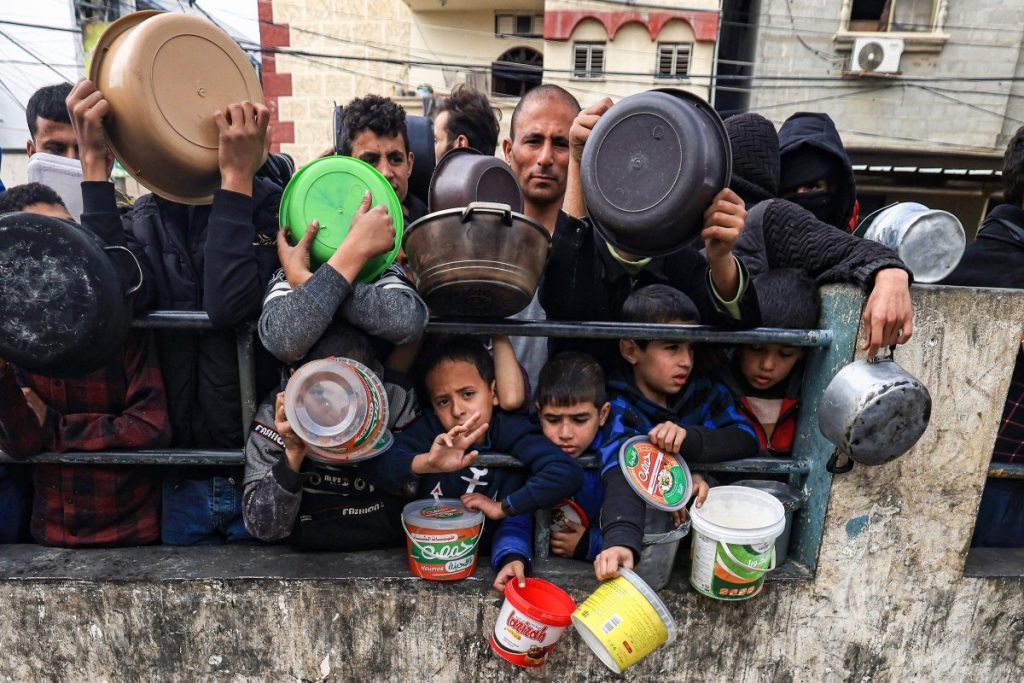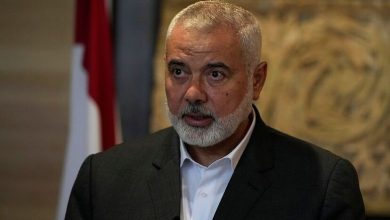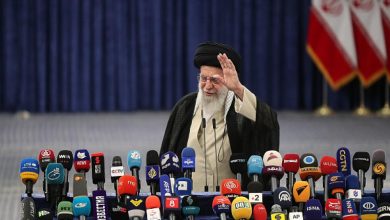The Occupation Manipulates Gaza Aid: Markets Flooded with Snacks While Essential Goods Decline
The occupation is manipulating aid to Gaza by flooding markets with juices and snacks while reducing the availability of essential goods.

Watan-The markets in Gaza are experiencing a flood of non-essential goods since the ceasefire took effect on January 19. There has been an accumulation of such items while many essential goods necessary for Palestinians’ daily lives are lacking, including basic necessities like fuel, cooking gas, and simple, quick-to-access construction materials.
This market contradiction exacerbates the dire humanitarian situation for Palestinians returning to their destroyed homes after a harsh displacement journey, during which they endured various forms of deprivation. Basic necessities are scarce, and prices have soared to unprecedented levels, while poverty and unemployment have worsened to catastrophic levels due to the destruction of the Palestinian economy and the loss of income sources for hundreds of thousands of people.
An Abundance of Juices, Chocolates, and Snacks
Since the ceasefire began, deprivation has taken a new turn, with large quantities of secondary goods such as juices, soft drinks, chocolates, snacks, biscuits, sweets, instant coffee, and instant noodles becoming widely available at low prices. Meanwhile, essential items such as cooking gas, gas cylinders, petroleum derivatives, water, and alternative electricity supplies like solar panels, batteries, wires, and generators—vital substitutes for the completely cut-off electricity—remain scarce.
Additionally, water and internet lines have been cut, causing prices for medicine, flour, oil, sugar, rice, vegetables, and fruits to rise significantly.

Tightening the Noose
Political conditions and Israeli policies largely control the unstable market situation. There is a systematic policy of depriving Palestinians of essential goods to increase hardship and restrictions, while markets are flooded with non-essential items. This is done by allowing only certain types of goods in at the expense of others that are far more critical for Palestinians, who are still suffering the catastrophic consequences of the war since October 7, 2023.
The Euro-Mediterranean Human Rights Monitor Warns of a Worsening Humanitarian Crisis
In its latest report, the Euro-Mediterranean Human Rights Monitor stated that the humanitarian crisis in Gaza is worsening and has not improved since the ceasefire between the Palestinian resistance and Israeli occupation began. The continued failure to allow in essential humanitarian aid is exacerbating the suffering of Palestinian civilians and deepening the humanitarian crisis.
The monitor pointed out that despite an increase in the number of trucks entering Gaza, many of them carry commercial goods that are not essential and are not a priority for Palestinians. This situation necessitates urgent international intervention to ensure aid reaches those in need without delays.
According to the report, around 8,500 trucks have entered Gaza since the ceasefire began, but only about 35% have reached northern Gaza. Additionally, 9,500 tents of poor quality have been delivered, despite an initial estimate that 120,000 tents were needed—meaning only 8% of the actual demand has been met. Regarding fuel and gas supplies for emergency services, only 14 trucks enter daily, while the urgent need is estimated at around 30 trucks per day.

Busy Markets in Gaza
Palestinian vendor Mohammad Abu Rida, who owns a stall in Al-Thalathini Market in southern Gaza City, noted that customer activity has picked up since the ceasefire took effect and displaced people returned to northern areas. However, the crisis persists due to the lack of essential goods, despite the arrival of some trucks, which are insufficient to meet the growing demand.
Abu Rida explained that while markets have seen an improvement in available goods, most of them are non-essential or are only needed in small quantities, such as clothing, shoes, toys, snacks, and beverages. He added, “These products help provide some relief after a long period of stress and deprivation, but there are more important items like gas, fuel, and basic food supplies.”
Palestinian Ammar Al-Beltaji highlighted the chaotic and unregulated state of the markets since the beginning of the war, where essential goods disappear suddenly while other items appear in large quantities, despite not being urgently needed. He noted that the market is dominated by policies of flooding and deprivation, along with supply and demand dynamics. Secondary goods are abundant, while crucial necessities are scarce and, when available, are sold on the black market at exorbitant prices.
He said, “Instead of filling trucks with massive amounts of biscuits, chocolate, chips, and juices, they should have been used to bring in gas so we could stop cooking with firewood, which has exhausted us and made us sick. Or at least bring in fuel so we can move cars instead of walking long distances on foot, or operate machinery to clear the rubble blocking roads. Instead of flooding the market with instant coffee and juices, priority should have been given to food, medicine, and solar panels to alleviate the total blackout crisis.”

Struggles Amid Economic Hardship
After her family lost its only source of income when her husband was forced to stop working, Palestinian Fatima Abu Al-Iss described the dire economic situation. She explained that the prices of essential goods such as flour, rice, and oil remain high despite the ceasefire, forcing her to buy much less than her family needs.
Abu Al-Iss said that market conditions changed after the ceasefire agreement took effect, with previously unavailable goods like clothing, toys, and children’s sweets reappearing. However, she added, “I need food and medicine more than anything else to keep my children from going hungry. Sometimes, I feel like the markets are not meant to meet our basic needs but to drown us in luxuries and non-essentials.”






